Sexual consent lessons in schools: Common phrases that could land Australian teenagers in jail
A list of phrases that have been used since “time immemorial” could now land Aussie teens in jail, a new educational program has warned.
A list of phrases that have been used since “time immemorial” could now land teenagers in jail, a new educational program being used by some Australian schools and parents has warned.
The 20-minute interactive, digital course – which is designed to teach 15-18 year olds about issues around consent – tells teenagers simple phrases like “you would if you loved me” could spell trouble for them later down the track.
Created by the former headmaster of Sydney’s The Kings School, Dr Timothy Hawkes, through his education project called Truwell, the lesson informs teenagers they should always “seek enthusiastic agreement to any sexual activity they are proposing”.
In one part of the lesson, teenagers are told about coercion and some of the phrases that could spell legal trouble for them if used against them in a court of law as evidence after an alleged sexual assault has taken place.
RELATED: Male students forced to apologise to female students
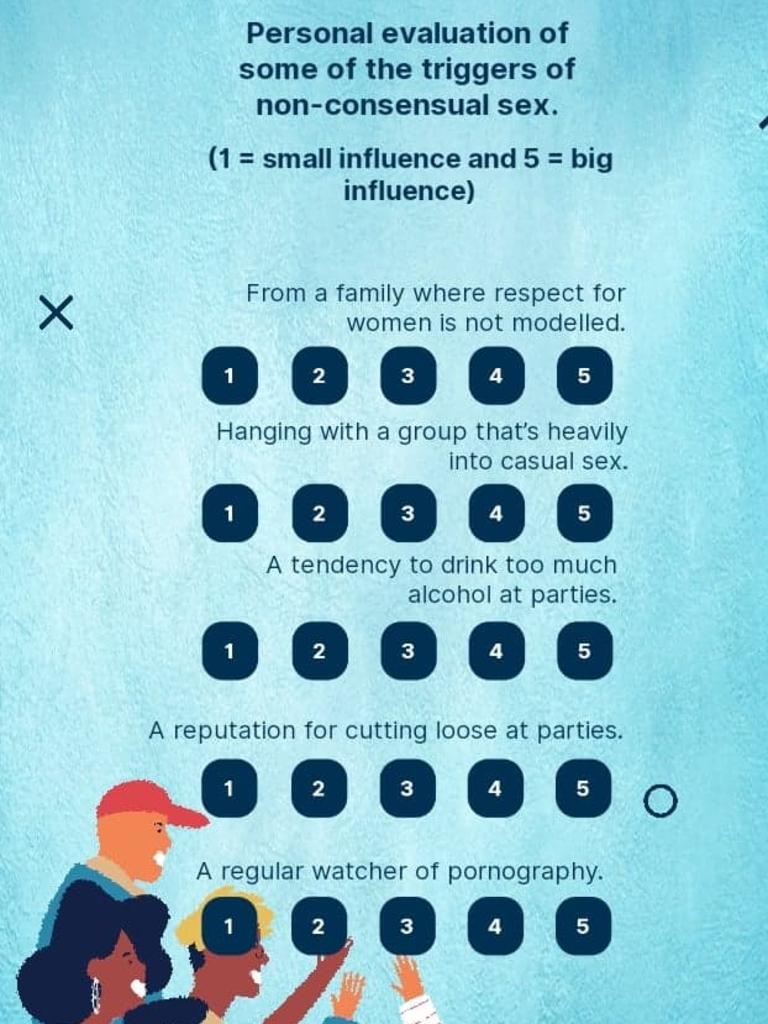
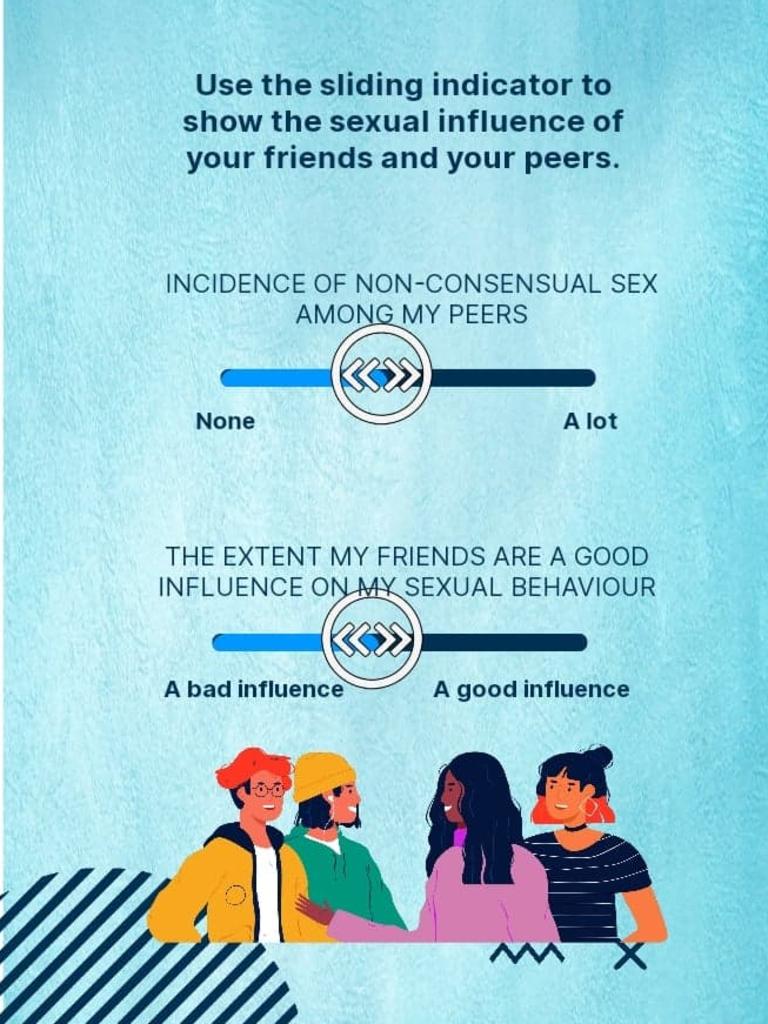
“The use of physical threats to obtain sex is transparently recognised by most as being coercion and unconscionable,” it states. “Somewhat less well understood is the use of social and emotional coercion to engage in sexual activity.”
The lesson states that students “need to recognise that the law may see the following sort of
language as coercion and criminal”.
The phrases listed are:
• “You would if you truly loved me.”
• “Everyone else is doing it.”
• “Don’t you want to make our relationship stronger?”
• “You don’t want to be labelled ‘frigid’ do you?”
• “You’ll be bagged out for being a virgin if you don’t do it with me.”
The lesson then talks about other ways victims can be coerced into non-consensual activities.
“Some sexual predators have used blackmail to get sex,” it states.
“Sometimes this can involve such activities as the threat to release intimate photos or nudes unless sex is given.
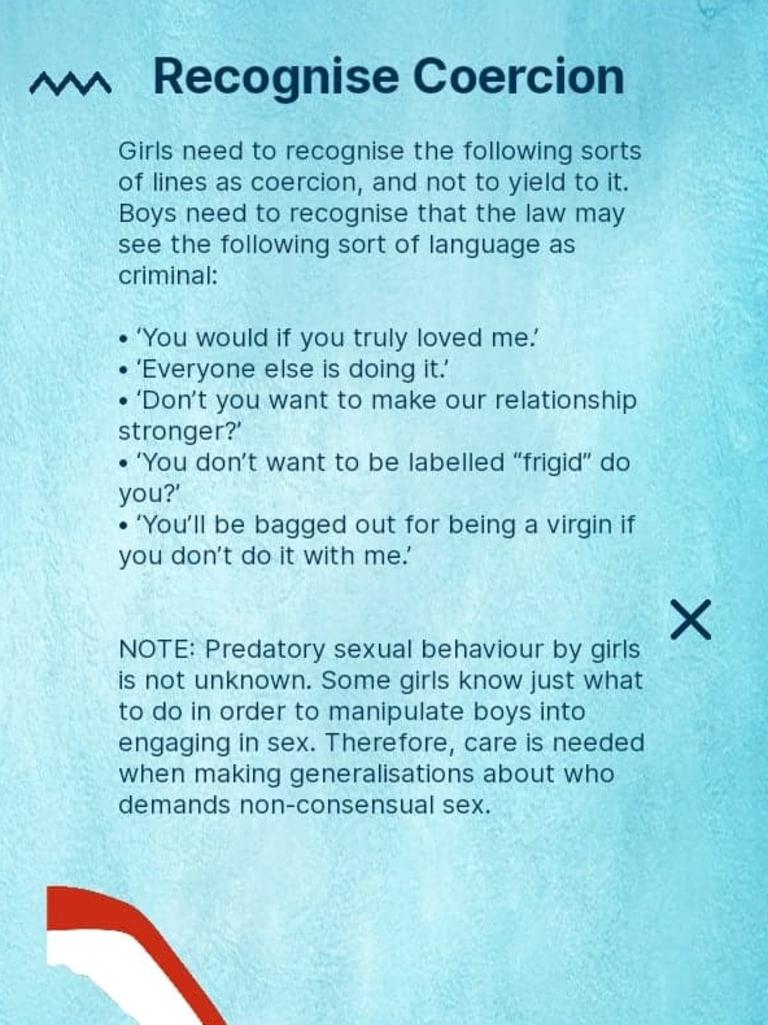
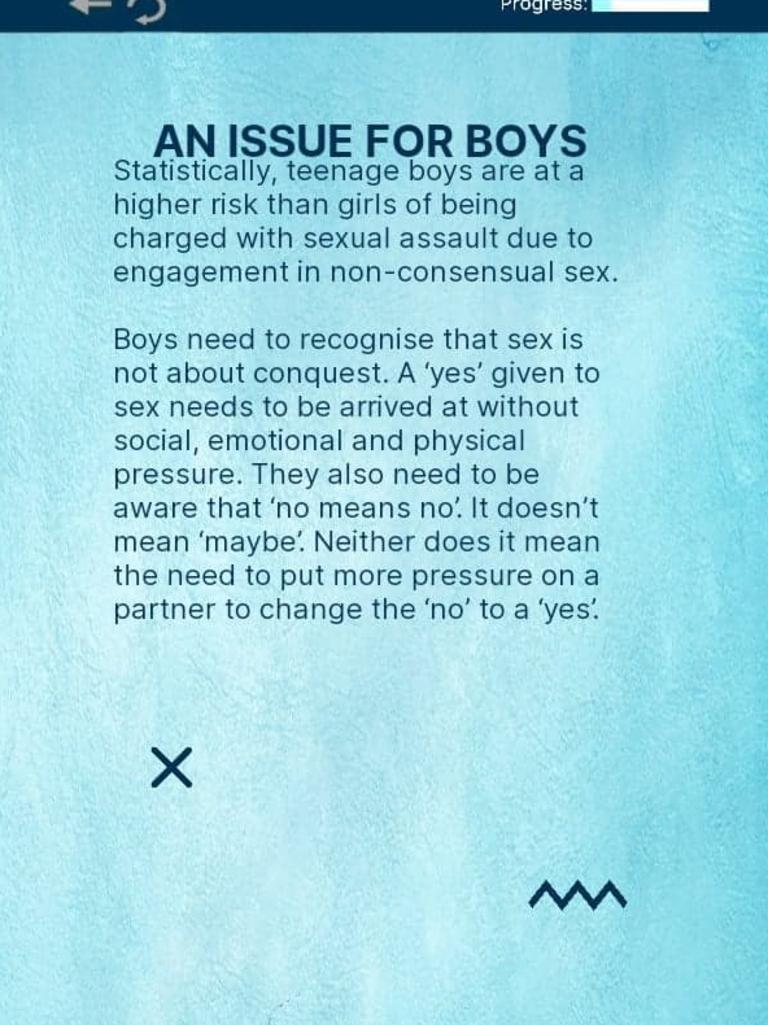
“This sort of behaviour will be seen to be a very serious crime, as could any form of bribery to gain sexual favours.”
Dr Hawkes told news.com.au phrases such as those outlined in the lesson have been used by teenage boys since “time immemorial”, but “given the current advice” they are now unacceptable – and rightly so in his opinion.
“There’s an increasingly grey area around what constitutes coercion,” he told news.com.au. “Some courts of law may come to the conclusion that these types of phrases are a form of coercion and others may not think so.
“But the advice I’d be giving my sons is that it is best to stay away from them.”
The lesson also talks about “red flags” that indicate “non-consensual sex may be more
likely”.
It states that a student “may be more at risk of failing to respect the notion of consent” if they have the following attributes:
• A tendency to drink too much alcohol at parties.
• A reputation for ‘cutting loose’ at parties.
• Hanging with a group that’s heavily into casual sex.
• A regular watcher of pornography.
• From a family where respect for woman is not modelled.
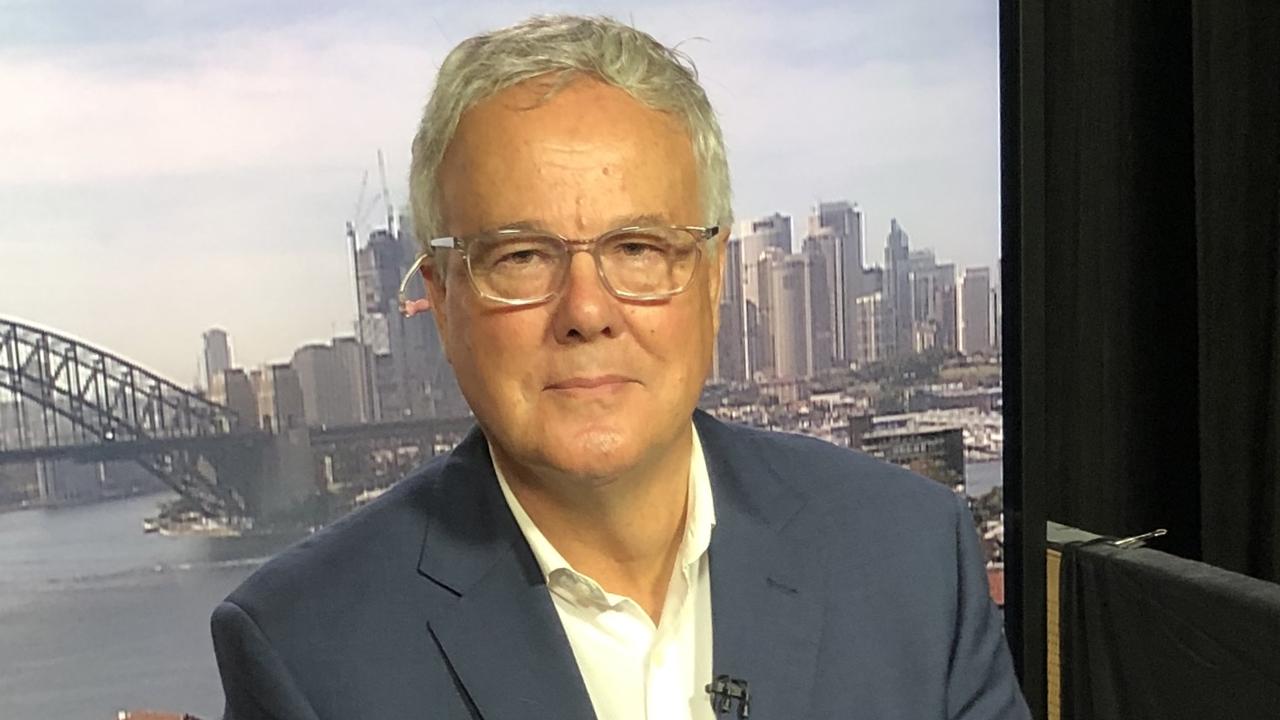
• A tendency to see a potential sexual partner as “fair game” to be hunted.
• A person with a history of multiple sexual partners.
• Ignorance about what constitutes consent.
• Having the common, “I want what I want when I want it” mentality.
• The desire to be thought to have great sexual ability.
Dr Hawkes said his new online lesson is beginning to be used by some schools and parents as a free resource to teach teenagers about issues around consent.
The issue has become a hot topic in recent weeks – after a viral petition from Sydneysider Chanel Contos exposed thousands of stories of sexual assault from students and former students around Australia, throwing the education sector into crisis.
Victoria’s Acting Premier James Merlino revealed this week that teaching consent would be compulsory in all government schools from next month under an expansion of the Respectful Relationship program.
The initiative previously did not explicitly direct schools to teach consent and instead focused on relationships, sexuality and safety.
RELATED: Chilling story exposes sinister teen trend

RELATED: ‘Very weird’: Sick theory behind teen assaults
From term two, the new directive will compel state schools to teach the government’s Respectful Relationships training on free agreements.
“(Respectful Relationships) is proven to make a real difference and is a recommendation of the Royal Commission into Family Violence,” the Education Minister said in a statement on Sunday.
“It is a program that should be rolled out nationwide. But we have to listen to students, who say they want and need a greater focus on this issue in the classroom.
Meanwhile, in NSW, the state’s Department of Education and heads of the independent and Catholic schools associations have put forward a potentially game-changing draft bill to change the focus of sex education lessons.
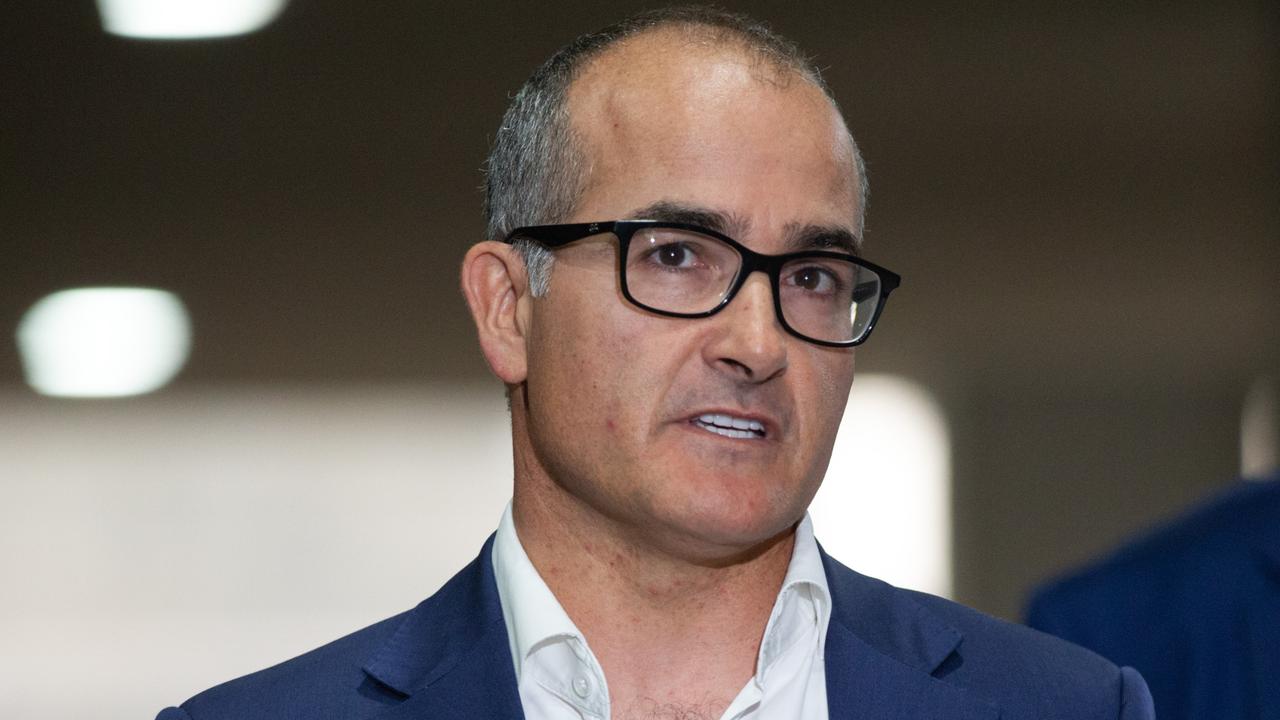
It has not been signed off yet, but it states that a “student voice” and “experience” is “critical in strengthening healthy and respectful relationships”.
“We commit to identifying and taking concrete actions that will strengthen children and young people’s ability to form healthy relationships and prevent harmful situations, both at school and outside the school gates,” the draft, which has been seen by The Australian, says.
“All children and young people have a right to feel safe and respected at school and in the community. We will listen to their views about harmful sexual behaviours and how best to prevent them, and find ways to increase the voice of our students.”
The move – billed a “first step” to addressing concerns of female students – was spawned out of one of the recommendations from a high-level crisis meeting between school leaders and NSW Police in early March.




